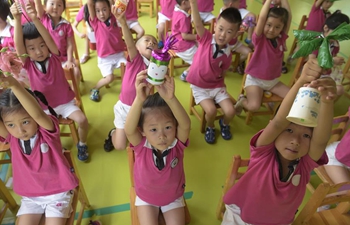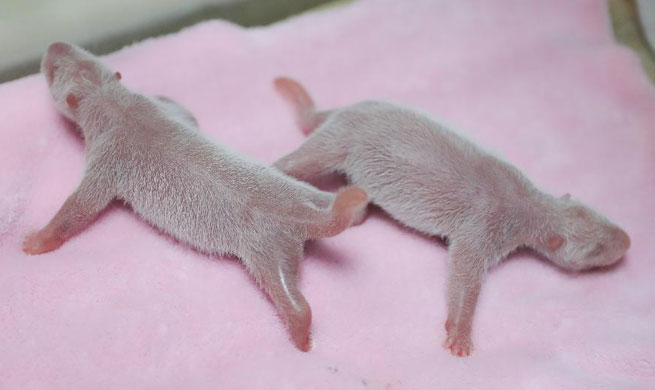SHANGHAI, June 5 (Xinhua) -- In a 15-minute video on YouTube, Ghanaian blogger Elorm Senoo braided herself a new hairstyle with hair extensions in different lengths from China.
"I love the feel of the hair. It feels so silky," Senoo said in the video review while combing and styling her synthetic hair extensions.
For many Chinese, wearing a wig or adding hair extensions is a new fashion. However, the practice is an old tradition in Africa, where most of the hair products are now imported from China.
"In Nigeria alone, we sell 9 million to 11 million items of hair products per year," said Zheng Wenqing, general manager of Henan Rebecca Hair Products Co., Ltd.
At the first Chinese Brand Expo held in Shanghai last month, Rebecca showcased a variety of human hair wigs and synthetic hair products.
Closer relationships and more in-depth cooperation between China and African countries in recent years have made Africa Rebecca's biggest market.
The company now sells its hair products in over 20 African countries, and its revenue from Africa in 2017 reached 884 million yuan (138.1 million U.S. dollars), up 23 percent from the previous year and accounting for nearly half of its overall revenue.
The company has been expanding its business in the continent.
In China, wig-making started over a hundred years ago and has become an export-oriented industry. In 2017, China exported 3.2 billion dollars worth of hair products, with Africa being its second-largest market with a 34-percent share.
Thanks to the high quality and delicate craftsmanship, Chinese hair products now have about a 35-percent share of the African market, said Wang Fenrong, secretary general of the Sub-Chamber of Wigs at the China Chamber of Commerce for Import and Export of Light Industrial Products and Arts-Crafts.
Fashionable designs have helped to propel the popularity of Chinese wigs. Chinese companies offer local customers special designs, including synthetic hair braids, dreadlocks, and crochet hair.
Although many synthetic hair products are still the best sellers in many African countries, human hair products are attracting more and more African customers who are willing to and can afford to spend more.
China's wig business, a typical labor-intensive industry, also brings jobs and growth opportunities to African countries, Wang said.
According to Wang, many Chinese wig companies have opened factories in African countries, creating around 10,000 jobs for the locals.
And the future of the business is even more promising. With its stable economic growth and rising living standards, Africa is expected to become one of the biggest hair product markets in the world, Zheng said.

















